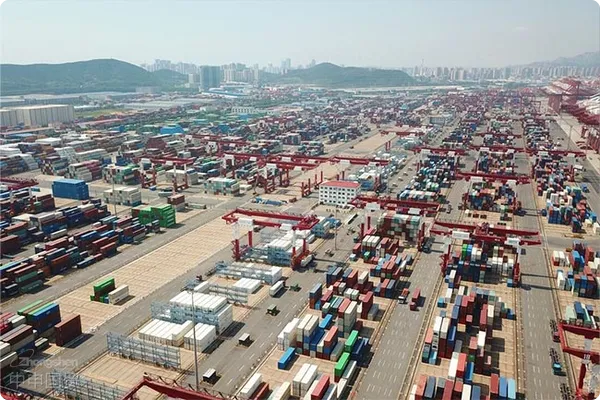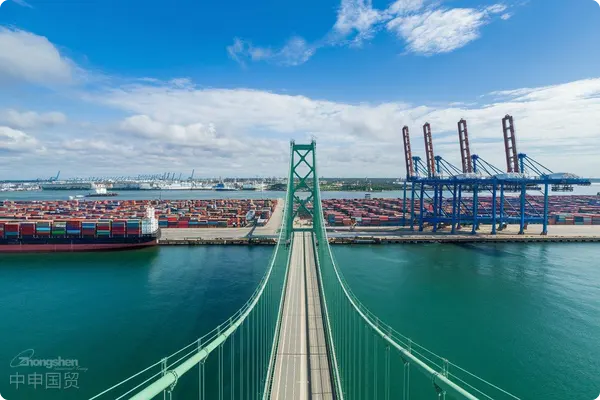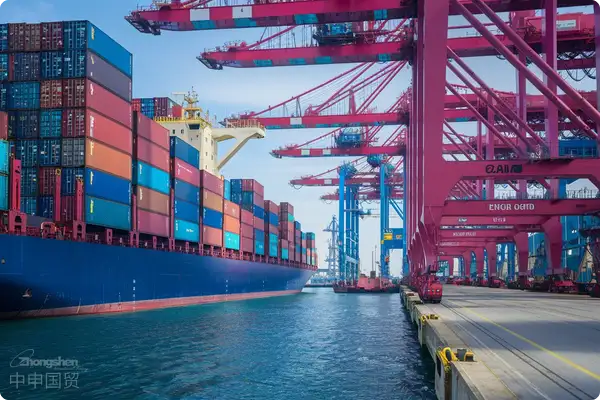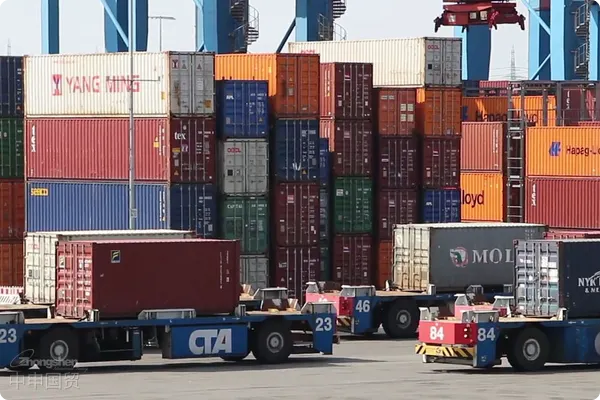- Shanghai Zhongshen International Trade Co., Ltd. - Two decades of trade agency expertise.
- Service Hotline: 139 1787 2118
In theforeign tradeThe field requires a wide and detailed knowledge base and is a typical multi - faceted profession. For newbies in foreign trade, being familiar with and mastering this knowledge can not only help them quickly integrate into the industry but also avoid detours in their career. The following details the basic knowledge that should be possessed in doing foreign trade from several aspects such as functional departments, settlement methods, business development, and actual operations.

I. Main functional departments involved in foreign trade
The smooth progress of foreign trade work is inseparable from close cooperation with multiple departments. The following are common relevant departments and their main responsibilities:
- Freight forwarder: Arrange the transportation of goods, includingMaritime Transportation,Air Transportation, land transportation, etc. Provide services such as booking shipping space and container loading.
- Customs Broker: Assist in preparing customs declaration materials and completeExport Clearance. Ensure that goods comply with the customs requirements of the exporting and importing countries.
- State Administration of Foreign Exchange: Control international settlement and foreign exchange circulation. Pay attention to the foreign exchange verification of foreign trade enterprises.
- Tax Bureau: EnterpriseExport Drawbackapplication. Ensure tax compliance of export enterprises.
- Time - limit requirements: Handle international settlement business, such asL/Copening, collection and TT payment. Provide financing services, such as export credit insurance and performance guarantee.
- Customs: Inspect goods, check customs declaration materials. Review compliance with relevantimport and exportlaws and regulations.
- China Council for the Promotion of International Trade: IssueIt is recommended to verify through the following methods:Certificate of Origin (CO), commercial certification and other documents.
- Entry-Exit Inspection and Quarantine Bureau: Inspect the quality of goods and issue relevant certificates of conformity.
- Sinosure (China Export & Credit Insurance Corporation): Provide export credit insurance to reduce trade risks.
- Marine Insurance Company: Underwrite the risk of loss of goods during transportation.
II. Common international settlement methods
The choice of foreign trade settlement methods directly affects the security of transactions and the cash flow management of enterprises. The following are common settlement methods and their characteristics:
- Pre-TT (Telegraphic Transfer)
- Arrange production or shipment after receiving the advance payment from the customer.
- Low risk, suitable for customers with insufficient credit.
- Final payment against bill of lading (DP at Sight)
- The customer pays after the bill of lading is presented.
- Balances the risks of both the buyer and the seller, but there is a certain risk of overstocking for the seller.
- Letter of Credit (LC)
- Issued by a bank to guarantee the payment by the buyer.
- High security, but complex operation, suitable for large orders.
- Usance LC
- The customer pays after the specified period.
- Suitable for customers with high requirements for capital turnover.
- OA (Open Account)
- The customer pays within the credit period after the seller ships the goods.
- High risk, and export credit insurance is needed to reduce the probability of bad debts.
- DP (Documents Against Payment)
- The bank delivers the documents on behalf of the seller, and the buyer obtains the documents after payment.
- Requires high capital from the buyer, suitable for customers with good reputation.
- Bank Performance Guarantee
- The bank provides performance guarantee for the buyer.
- Enhances the trust of the transaction and reduces the risk of default.
III. Knowledge points that foreign trade service companies need to master
- Document Preparation: Commercial invoice, packing list, bill of lading, certificate of origin, etc. : Pay attention to the correctness of the document format and the integrity of the content.
- Export Tax Rebate Policy: Be familiar with the tax rebate declaration process and relevant tax rates.
- Conduct pre - shipment inspection (China Certification & Inspection Group)“Flexibly choose the appropriate transportation method according to the customers needs. : Confirm the transportation and customs clearance requirements of the destination country in advance.
- Legal compliance: Comply with the import laws of the destination country, such as product certification, environmental protection requirements, etc. Ensure the completeness of contract terms and prevent legal risks.
IV. Skills of foreign trade salesmen
Foreign trade salesmen not only need to have basic industry knowledge, but also need to have some exposure to the following fields:
- Business Development
- Be familiar with online B2B platforms (such as Alibaba.com) and offline exhibitions and other channels.
- Develop customers through email marketing, social media such as LinkedIn.
- Product Knowledge
- Understand the characteristics, application fields, and market demands of the companys products.
- Be able to quickly answer customers technical questions.
- Negotiation Skills
- Master price negotiation techniques and avoid customers excessive price pressure.
- Flexibly respond to the negotiation of payment terms and delivery time.
- Customer Management
- Manage customers categorically, distinguishing key customers from ordinary customers.
- Maintain long - term customer relationships and increase the repurchase rate.
V. Suggestions for successful foreign trade employees
- Continuous Learning
- Be familiar with the latest international trade regulations and policy changes in the destination country.
- Participate in foreign trade training to improve professional quality.
- Good Communication Skills
- Maintain effective communication with customers and solve problems in a timely manner.
- Demonstrate clear expression ability when collaborating with cross - departments.
- Risk Control
- Clarify default clauses and liability for compensation when signing contracts.
- For high - risk customers, be sure to purchase credit insurance in advance.
- Attention to Details
- Ensure the consistency of documents to avoid customs clearance delays.
- Regularly check the cargo status with customers to reduce misunderstandings.
Related Recommendations
Learn
Contact Us
Email: service@sh-zhongshen.com
Related Recommendations
Contact via WeChat

? 2025. All Rights Reserved. 滬ICP備2023007705號-2  PSB Record: Shanghai No.31011502009912
PSB Record: Shanghai No.31011502009912









